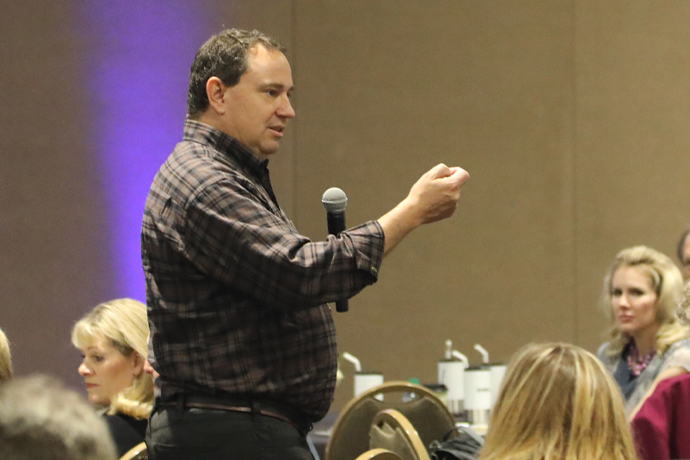The future of clean energy came into focus Oct. 27 during Energy Northwest's 25th annual Public Power Forum.
The conference brought together more than 170 participants from public utility districts and other energy businesses across the region, on the theme "Transforming our clean energy future."
The theme dug into the challenges facing public power, from increasing demand to new technologies to policy changes and government mandates.
"The clean energy transformation is upon us," said Will Purser, EN Executive Board chair.
EN is leading the charge through its advanced nuclear partnerships, work to expand the electric vehicle grid in Washington, support for new solar development and efforts to extend the license and capacity of Columbia Generating Station.
"While it has been a good year for EN, I recognize that it would not be possible without all the dedicated professionals who make it happen," CEO Bob Schuetz noted. "I'm proud of our employees and their many accomplishments and I'm excited about the opportunity we have to help shape the clean energy future for generations to come."
Solving grand challenges
Energy is at the top of the list of the 10 "grand challenges" facing the globe, which includes food insecurity, clean water, health, war and terrorism threats.
"If we can solve our energy problems, we can solve our water problems. If we can solve our water problems, we can solve our food problems," said keynote speaker Michael Webber, chief technical officer for Energy Impact Partners and the Josey Centennial Professor in Energy Resources at the University of Texas at Austin. "Energy is the key that unlocks all of this."
Webber (pictured above) challenged attendees to change how they think about energy, emphasizing four areas he says are key to achieving a clean energy future: Efficiency and conservation; electrification; green molecules; and carbon management.
Pushing issues forward are recent policies promoting energy development, the impact of the war in Ukraine on the energy industry, and the passion of the upcoming generations to solve the climate crisis.
"Students today think climate change and energy is their Cold War," Webber said. "That's the mindset they are using to look at this problem. It may take a few decades to solve, and they say, 'That's OK, we're going to solve it.'"
Breakout sessions offer details
Breakout sessions during the forum gave participants an opportunity to dig into topics of specific interest to their utilities, including demand response and advanced meter technology; securing federal funding for projects; and collaborating on future energy needs.
The future is now
Greg Cullen, vice president for Energy Services & Development, closed the forum with a discussion of EN's efforts to support new nuclear development in the Northwest and a recorded Q&A session with Kathryn Huff, assistant secretary for Nuclear Energy at the Department of Energy.
"We're going to need as many renewables as we can conceivably deploy. We're going to need to dive deep into storage technologies," Huff said. "Those pieces are part of our solution, and nuclear has to be the part of the solution that provides the most reliable, highest-capacity baseload energy source."
